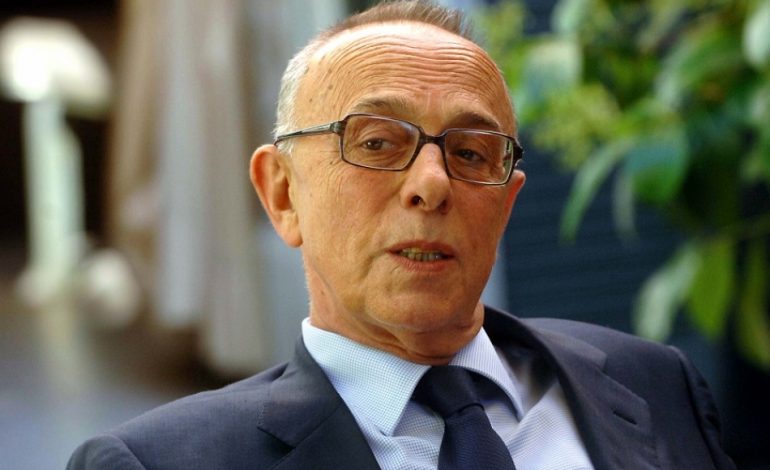Let me explain Putin’s bluffs on nuclear weapons. Talk Jean

The war in Ukraine and Putin's atomic threats analyzed by General Carlo Jean
It is a merciless analysis, the one that Carlo Jean, general of the Army Corps on leave, with a great experience in the field of strategy and geopolitics, makes of the Russian special military operation in Ukraine even when a worrying escalation that causes fear of the use of the atomic weapon.
For the Russians the mistake was at the start, Jean points out in this interview, having sent only 150,000 men to fight against a nation that immediately proclaimed general mobilization, forming an army six times larger than that of the Russian army. The further miscalculation was, adds the general, that of employing trained troops to fight "in the open land" of NATO countries and certainly not in a wooded area and dense with villages like the Ukrainian one.
As for nuclear threats, the general is skeptical: the use of tactical nuclear weapons on a battlefield would have, beyond a political and symbolic value that could not be underestimated, a null effect in military terms, and would even be a counterproductive move due to the radioactive fall-out that would affect its troops and its territory.
General Jean, considering Putin's unveiled threats made in recent days, how well-founded should we consider the hypothesis of the use of the atomic weapon by the Russians in the battlefield?
The possibility that the Russians use the tactical atomic weapon on the battlefield, especially those with the possibility of radioactive fallout on the territory, even friendly and therefore on their own troops, is extremely unlikely. The effectiveness of a tactical atomic weapon is, among other things, very low. Bear in mind that, during the Cold War, NATO had 7,000 of them in Europe because they had to be used in packages of 100, 200 at a time to have a certain effect. A 5 kiloton atomic weapon or even a non-neutron uranium-plutonium cycle weapon on a tank company deployed in combat kills a dozen tanks in all, so it's not like one can change the situation on the ground except that is not used in very large numbers. But very large numbers one cannot use them near their territory because radioactive fallout is risked.
But Putin was very clear when he said he is willing to use any weapon at his disposal to defend Russia's territorial integrity.
They are chatter that he does from the beginning. He always played on the fact that he thought of a weak and decaying West and that he did not find the courage to challenge a nuclear threat. Instead, the West calmly challenged him and surely even the Russian military leaders, I am convinced, would not carry out such an order, because the problem of nuclear weapons is not so much the tactical use: it is the use on the cities. Atomic weapons on cities have a disastrous effect but they don't, I repeat, on the battlefield. Surely the use of a couple of nuclear weapons would have a very strong psychological and political effect but a very small military effect.
You have rightly made these clarifications, but I must ask you in any case what the US and NATO are thinking at the moment and what their reaction could be to a header by Russia.
It depends on what kind of header it is. The Western response can vary enormously: from a demonstration outbreak on the Black Sea or in a sparsely inhabited area to the deployment of a hundred warheads against Russian forces. Consequently, a response to the Russian use of nuclear weapons cannot be planned, because this response can vary enormously; it depends on whether Hiroshima Nagasaki atomic bombs are used, therefore with strong radioactive fallout, or neutron-type bombs that do not produce a heavy radioactive fall-out and which however have an effect on the tanks but not on the shelters because they do not penetrate the concrete.
It seems that things are going badly in Ukraine for Putin. That's it?
This was known from the beginning. A country with a population of 44 million with 150,000 men cannot be attacked. Then the restructuring of the Russian army has been done since 2012 by Gerasimov and Shoigu taking into account a clash with NATO forces, therefore in open land. They then organized groups of battalions with very little infantry. On the other hand, in an area like Ukraine full of woods, covered areas, small villages, this organic structure is absolutely not suitable for combat.
How is Putin's partial mobilization of reservists proceeding? There are reports of inefficiencies and the sending of poorly trained soldiers to the front.
It seems that he sent 10,000 especially to the Kherson area, which is also considered essential from a political and symbolic point of view. the strength of the number alone. In the particular case. However, the numbers are in favor of the Ukrainians, because the Ukrainians have resorted to a general mobilization and therefore have an army ranging from 700,000 to 1 million men. Consequently, even the 300,000 mobilized by Putin, assuming that they manage to train and arm them, risk being destroyed little by little, especially if they are not used en masse but only to try to plug the losses and partial leaks, as it seems. what is happening.
This is a machine translation from Italian language of a post published on Start Magazine at the URL https://www.startmag.it/mondo/russia-guerra-ucraina-analisi-jean/ on Wed, 05 Oct 2022 13:29:07 +0000.
